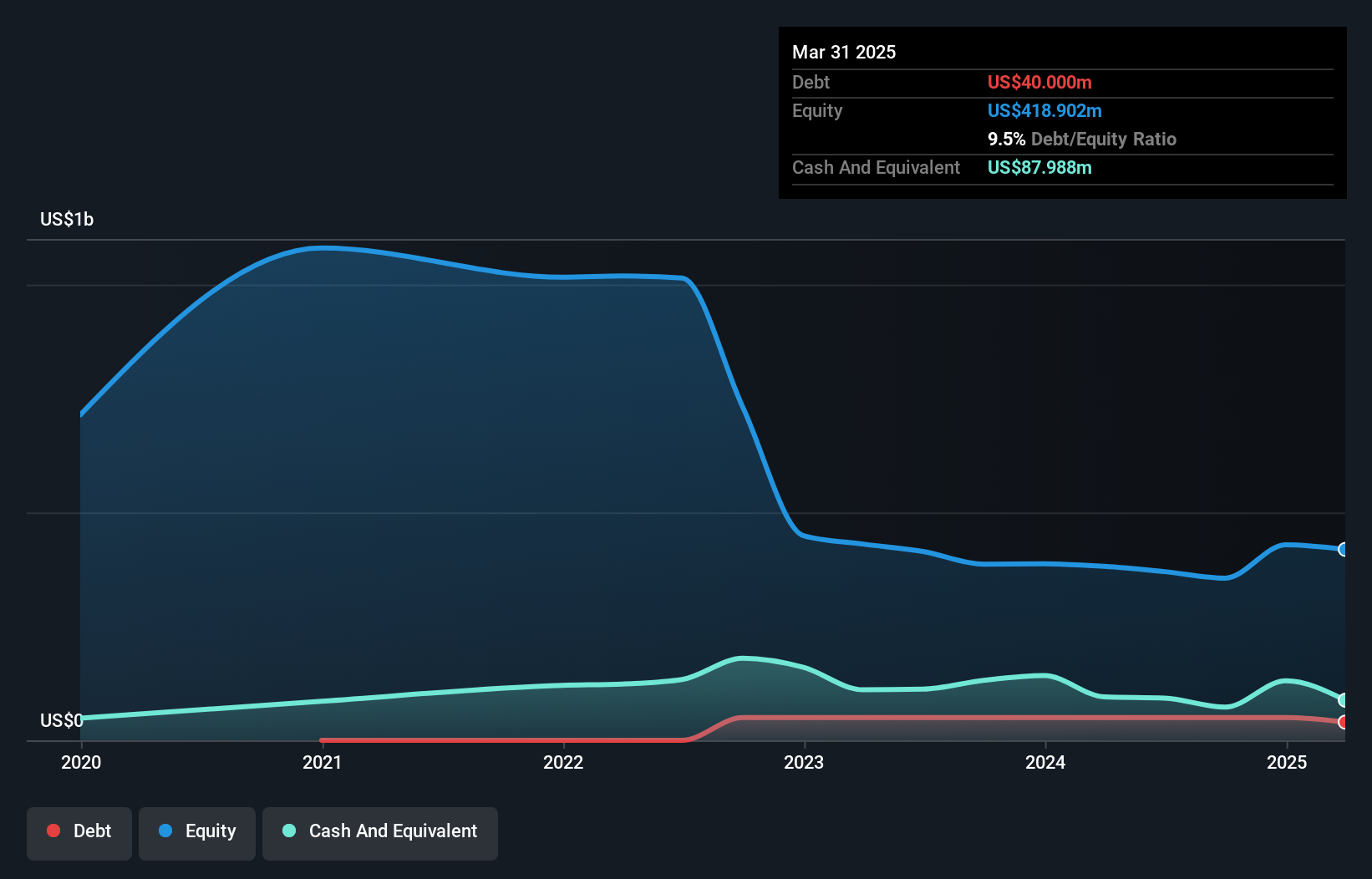David Iben put it well when he said, 'Volatility is not a risk we care about. What we care about is avoiding the permanent loss of capital.' So it might be obvious that you need to consider debt, when you think about how risky any given stock is, because too much debt can sink a company. We can see that Xperi Inc. (NYSE:XPER) does use debt in its business. But the real question is whether this debt is making the company risky.
Why Does Debt Bring Risk?
Generally speaking, debt only becomes a real problem when a company can't easily pay it off, either by raising capital or with its own cash flow. Part and parcel of capitalism is the process of 'creative destruction' where failed businesses are mercilessly liquidated by their bankers. While that is not too common, we often do see indebted companies permanently diluting shareholders because lenders force them to raise capital at a distressed price. Having said that, the most common situation is where a company manages its debt reasonably well - and to its own advantage. When we examine debt levels, we first consider both cash and debt levels, together.
How Much Debt Does Xperi Carry?
You can click the graphic below for the historical numbers, but it shows that Xperi had US$40.0m of debt in March 2025, down from US$50.0m, one year before. But on the other hand it also has US$88.0m in cash, leading to a US$48.0m net cash position.

A Look At Xperi's Liabilities
The latest balance sheet data shows that Xperi had liabilities of US$117.7m due within a year, and liabilities of US$96.8m falling due after that. Offsetting these obligations, it had cash of US$88.0m as well as receivables valued at US$142.1m due within 12 months. So it can boast US$15.5m more liquid assets than total liabilities.
This short term liquidity is a sign that Xperi could probably pay off its debt with ease, as its balance sheet is far from stretched. Simply put, the fact that Xperi has more cash than debt is arguably a good indication that it can manage its debt safely. The balance sheet is clearly the area to focus on when you are analysing debt. But ultimately the future profitability of the business will decide if Xperi can strengthen its balance sheet over time. So if you want to see what the professionals think, you might find this free report on analyst profit forecasts to be interesting.
See our latest analysis for Xperi
In the last year Xperi had a loss before interest and tax, and actually shrunk its revenue by 4.8%, to US$489m. We would much prefer see growth.
So How Risky Is Xperi?
We have no doubt that loss making companies are, in general, riskier than profitable ones. And the fact is that over the last twelve months Xperi lost money at the earnings before interest and tax (EBIT) line. And over the same period it saw negative free cash outflow of US$44m and booked a US$19m accounting loss. But at least it has US$48.0m on the balance sheet to spend on growth, near-term. Overall, its balance sheet doesn't seem overly risky, at the moment, but we're always cautious until we see the positive free cash flow. When analysing debt levels, the balance sheet is the obvious place to start. But ultimately, every company can contain risks that exist outside of the balance sheet. To that end, you should learn about the 2 warning signs we've spotted with Xperi (including 1 which is a bit unpleasant) .
If you're interested in investing in businesses that can grow profits without the burden of debt, then check out this free list of growing businesses that have net cash on the balance sheet.
New: AI Stock Screener & Alerts
Our new AI Stock Screener scans the market every day to uncover opportunities.
• Dividend Powerhouses (3%+ Yield)
• Undervalued Small Caps with Insider Buying
• High growth Tech and AI Companies
Or build your own from over 50 metrics.
Have feedback on this article? Concerned about the content? Get in touch with us directly. Alternatively, email editorial-team (at) simplywallst.com.
This article by Simply Wall St is general in nature. We provide commentary based on historical data and analyst forecasts only using an unbiased methodology and our articles are not intended to be financial advice. It does not constitute a recommendation to buy or sell any stock, and does not take account of your objectives, or your financial situation. We aim to bring you long-term focused analysis driven by fundamental data. Note that our analysis may not factor in the latest price-sensitive company announcements or qualitative material. Simply Wall St has no position in any stocks mentioned.
About NYSE:XPER
Xperi
Operates as a consumer and entertainment technology company worldwide.
Fair value with moderate growth potential.
Similar Companies
Market Insights
Community Narratives


Recently Updated Narratives


The Quiet Giant That Became AI’s Power Grid


Nova Ljubljanska Banka d.d will expect a 11.2% revenue boost driving future growth


The AI Infrastructure Giant Grows Into Its Valuation
Popular Narratives


The company that turned a verb into a global necessity and basically runs the modern internet, digital ads, smartphones, maps, and AI.


MicroVision will explode future revenue by 380.37% with a vision towards success



